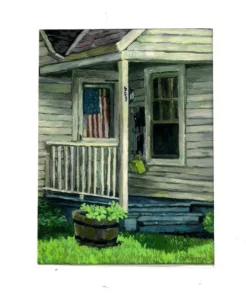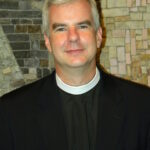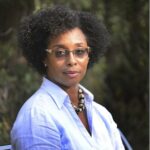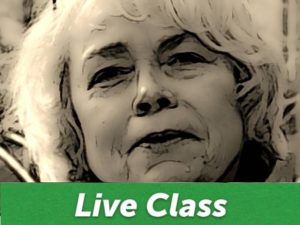 We just launched Becoming Beloved Community: Understanding Systemic Racism For Individuals and For Groups. This six-session curriculum is offered for free to any individual, congregation, or other group looking for deeper understanding of how systemic racism operates in our country and in our church, and for suggestions about what to do next in the process of Becoming Beloved Community.
We just launched Becoming Beloved Community: Understanding Systemic Racism For Individuals and For Groups. This six-session curriculum is offered for free to any individual, congregation, or other group looking for deeper understanding of how systemic racism operates in our country and in our church, and for suggestions about what to do next in the process of Becoming Beloved Community.
In her powerful 2020 book Caste, Isabel Wilkerson writes, “America is an old house. We can never declare the work over…Not one of us was here when this house was built…but here we are, the current occupants of a property with stress cracks and bowed walls and fissures built into the foundation…they are ours to deal with now.”
[Image: “Old House” by Patty Fleckenstein. Used with permission. Prints available on Etsy.]
If we look at America as an old house, as Wilkerson suggests, we can see racism as a structural flaw. It’s central to the house’s framework, and not by accident. Many white Americans approach racism as an age-old human problem that history has never been able to surmount. In this course, Dr. Ivy Forsythe Brown, Associate Professor of Sociology at the University of Michigan at Dearborn, and the Rev. Dr. Thomas Ferguson, Associate Professor of Church History at Bexley-Seabury Seminary and Rector of St. John’s Episcopal Church in Sandwich, Massachusetts, show us that on the contrary, while hostility to people and groups conceived as “the Other” has been a problem throughout human history, racism is a human construct — and not even a very old one — built for purposes of oppression.
As the current owners of this old house, the structural flaw of racism is ours to deal with now — as is the responsibility if we ignore the problems and allow them to grow.
- The Rev. Dr. Thomas Ferguson
- Dr. Ivy Forsythe-Brown
Jim Wallis, founder of Sojourners magazine, calls racism America’s original sin because of the inherited and fundamental nature of the problem — and, as with original sin, by the grace of God, we have hope. We can rebuild our house to eradicate structural racism and its many effects. The process will not be easy, or quick, or painless, but we can, and must do this work. As citizens who are responsible for the nation we have inherited and as Christians who are charged to love other human beings and resist sin, it is necessary on many levels that we make these changes. This course is designed to be an early step in that process.
In this course, Ivy and Tom take us through six sessions of material.
In Session One: Race, Privilege, and Beloved Community, Ivy and Tom describe this course’s mission in the context of the Christian call to resist racism, and they define key terms.
In Session Two: Building a Strong Foundation Ivy discusses how, if we alter our own behaviors, we can change the way we construct race and thereby contribute to dismantling systemic racism. She looks at key examples of systemic racism being deliberately incorporated into U.S. political and economic policies in the first 150 years of our history.
In Session Three: Systemic Racism in the U.S., Ivy examines U.S. history after the 1920s. She examines specific examples of deliberately constructed systemic racism and shows how they have led directly to racial injustices today.
In Session Four: The Episcopal Church and Race, Tom discusses The Episcopal Church’s active complicity in U.S. systemic racism and errors we have made in our attempts to combat racism. He talks about ways we can learn from our mistakes.
In Session Five: Racial Reconciliation and Personal Empowerment, Tom and Ivy discuss white privilege and white silence on racial matters as significant barriers to Becoming Beloved Community. They talk about ways to do productive racial justice work in your local community.
In Session Six: Actively Building Beloved Community, Ivy and Tom talk about traps into which people may fall, accepting or perpetuating racism without necessarily recognizing it, and how to avoid them. They talk about concrete actions congregations can take to Become Beloved Community.
At the end of the course, we hope each participant will have learned more about:
- The racism inherent to our nation’s social, political, and economic structures.
- The far-reaching effects of the racist policies white people have implemented into these structures.
- The participation of The Episcopal Church in creating and sustaining systemic racism.
- The need to change those structures and repair their negative effects.
- Barriers to changing those structures to make them truly egalitarian (and how to overcome them).
- The next steps we should take as congregations and individuals in Becoming Beloved Community.
- Many resources for learning more about systemic racism and about taking effective action.
We hope you will join us in learning about Becoming Beloved Community in our congregations, in our local communities, and in our nation. The work to which we are called is urgent and complex and requires all of us to bring effort and empathy to the task. Take this first step today.
The course is funded by the grants from Episcopal Church’s Presiding Officers’ Advisory Council on Becoming Beloved Community and the Diocese of Michigan and by Forward Movement. We are grateful for their support.






 Making Sense of the Cross Parts 1-3: These three courses offer David Lose’s examination of how to understand Jesus’ death on the cross in the context of our life experiences (
Making Sense of the Cross Parts 1-3: These three courses offer David Lose’s examination of how to understand Jesus’ death on the cross in the context of our life experiences ( It’s
It’s